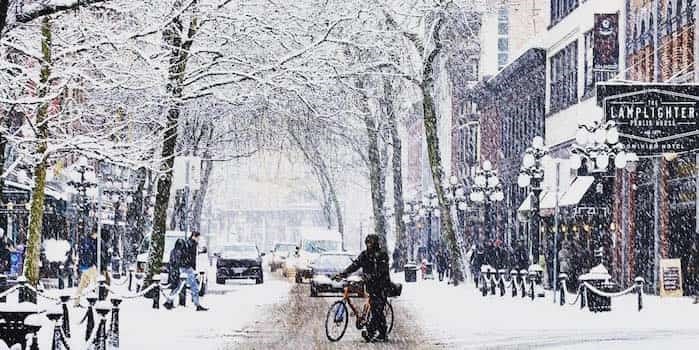 Photo: ricarg63 / Instagram
Photo: ricarg63 / Instagram
Winter is coming - but not for quite a while.
With that in mind, The Old Farmer's Almanac, a popular reference book, has released its prediction for the 2019/2020 Canadian winter season. It notes that, "the western-third of the country is forecast to see a milder ride with near-normal winter temperatures and precipitation predicted."
The Almanac also calls, "for above-normal winter precipitation over much of Canada." In fact, it refers to the upcoming winter season as a "polar coaster." What's more, it notes that temperatures will be higher than average across Canada, except in southern British Columbia which, "will bear the brunt of winter’s chill, with colder-than-average temperatures that include occasional face-freezing frigidity in January and February."
Environment Canada's long-term Metro Vancouver weather forecast calls for above average temperatures to continue into the fall season.
Vancouver Is Awesome spoke to Armel Castellan, Warning Preparedness Meteorologist, Environment Canada, about what he predicts the Lower Mainland has in store for the coming winter.
Castellan notes that while meteorologists can speculate on the upcoming winter season, it is difficult to predict this far out. Moreover, he doesn't foresee the same brutal chill in the Lower Mainland.
"It is extremely difficult to hang your hat on a precipitation forecast over a week out," he explains. "We base our predictions on previous successes. We've had some years where our prediction was correct, but there has to be more to work with."
Castellan remarks, however, that the Almanac made one good point about the frigid season.
"There's always major weather events during the winter. Whether the overall season sees above-average or below-average temperatures, there'll always be some variation."
Castellan cites the massive storm in December of 2018, which cut the 470-metre-long White Rock Pier in half with its powerful winds. He points out that the storm took place during a stretch of fairly average December weather, and that winter typically sees a variation of weather events - but not always as extreme as the 2018 storm, however.
El nino southern oscillation, or ENSO, also affects weather patterns in British Columbia, and Castellan states that, "Right now we are trending with warmer than normal temperatures."
Furthermore, he notes that these weather patterns are expected to continue into December, boasting an overall warmer trend for the beginning of winter in the Lower Mainland.


